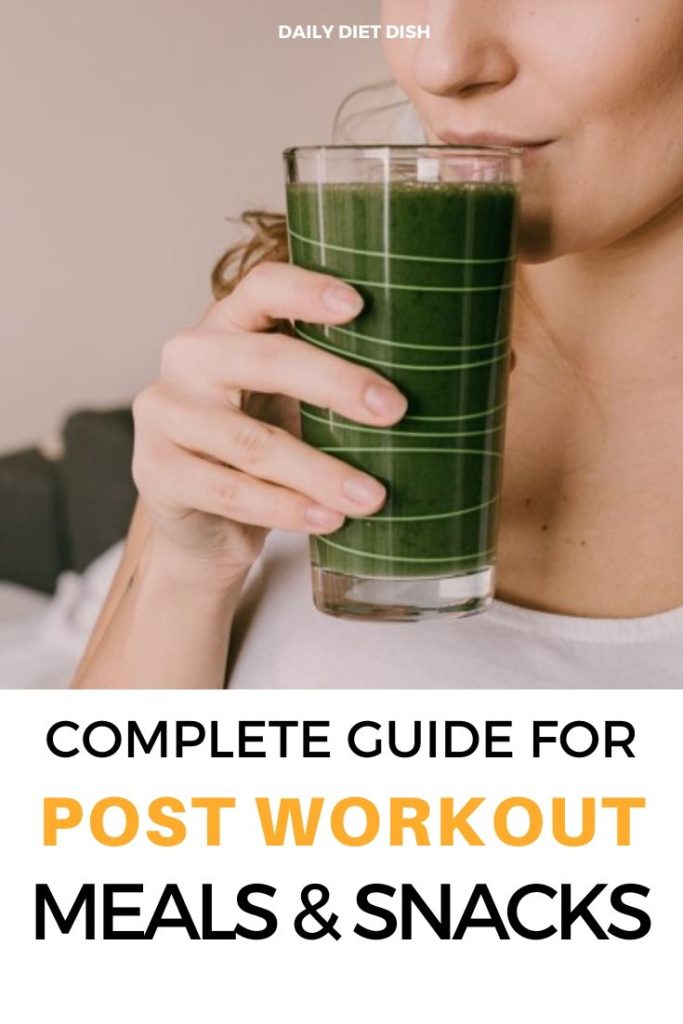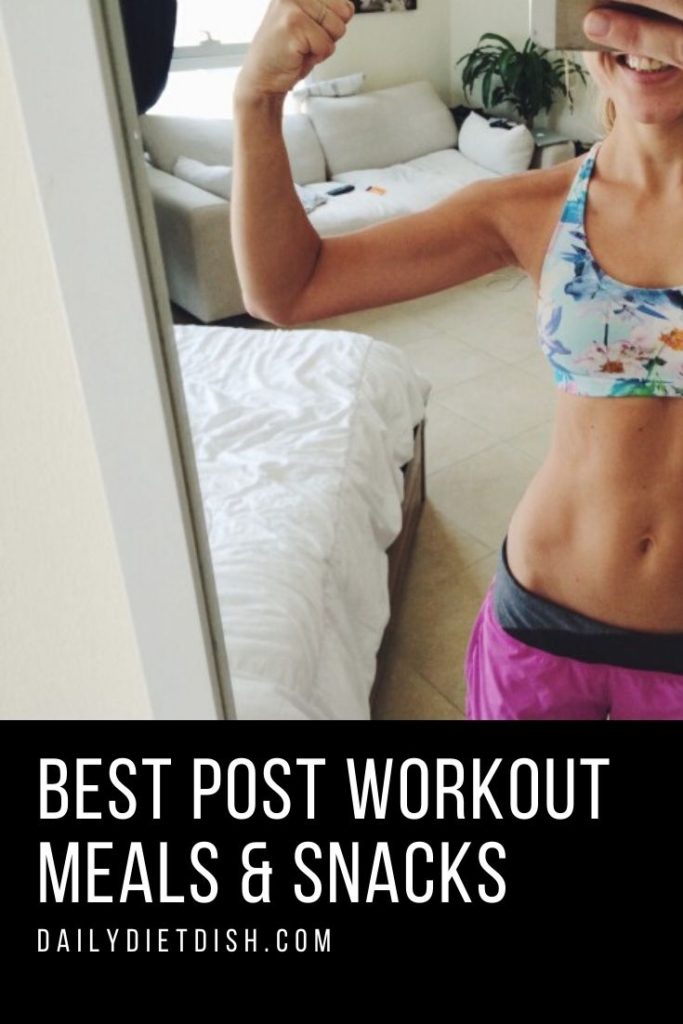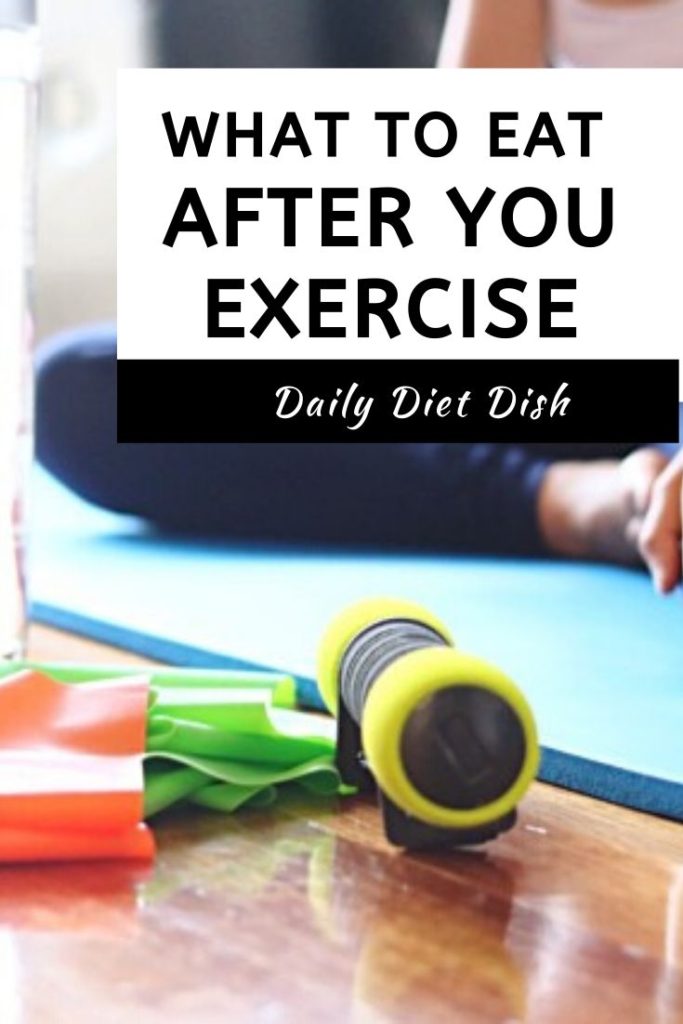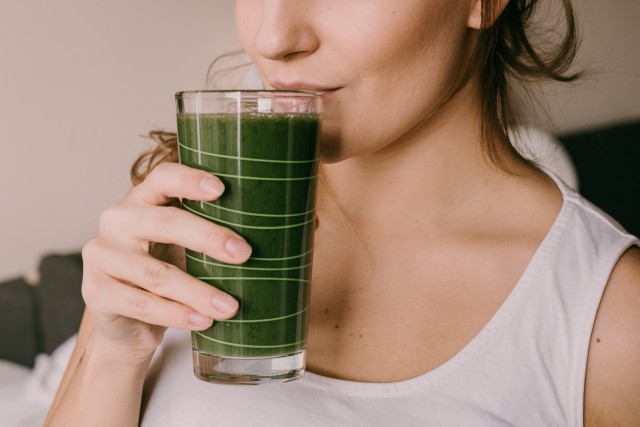Nutritionists work with athletes and body builders to optimize their post-workout meal so they can reach their exercise goals. Every breakfast, snack, dinner, and craving is planned for, and this prep work makes it easier to succeed.
Even without a nutritionist, you too can start a successful exercise regimen and plan what to eat after your workout. Everyone, not just athletes, should know what to eat before and after your exercise.
Some persons choose to have a meal either before or after their workout, while some choose to do both. It really depends on you. If you’re already getting enough calories on a healthy diet, and you know your activity levels throughout the day, you can probably rely on your appetite, energy levels and experience to tell you if you need to eat anything before or after exercise.
The most important rule here is to listen to your body and find out what works best for you.
The way that I found out that I needed a post workout snack was by doing a workout without eating. Around 15 minutes in, I started to feel dizzy and my energy started to wane. So there are definitely some advantages to knowing how your body works and what it needs to perform.
And if your goal is to lose weight, don’t worry about adding extra calories with a workout meal. Once you eat fewer calories than you use up, you will lose weight. But you can’t eat fewer than what your body needs to function at its best.
The size, timing and content of your pre- and post-exercise meals and snacks can play an important role in your energy levels during your workout. It also affects your recovery and muscle building and whether the calories you eat will be used as fuel or stored as fat. Here’s what you need to eat and drink to get the results you want.
Post-Workout Fluid Needs
A moderate workout will burn about 4 cups of fluid per hour of exercise. This liquid should be replaced by drinking about 16-20 ounces of water shortly after your workout to aid your recovery and prevent dehydration.
If you sweat a lot or the temperature is hotter than usual, consider weighing yourself before and after exercise, and drinking an ounce of water for every ounce of weight you’ve lost.
Remember that heavy sweating will cause you to lose minerals and electrolytes, so consider having a sports drink with electrolytes if you need to replace more than two or three cups of fluid.

Your Post-Exercise Meal or Snack
If you’re sticking with your recommended calorie range for the day, you don’t need to be worried about matching the following calorie and nutrient ratios perfectly. The ranges are there for guidance and to prevent overeating.
Use caution though, because many people are very hungry after a workout and they might think it’s okay to eat anything because they just worked out. Eating the wrong food after exercising can cause your body to store that food as fat instead of using your post-workout meal to refuel and repair your muscles.
So, what is the right post workout meal or snack?
Here’s how to know the type of meal and the amount to eat, starting with calories.
How many calories should you eat after a workout?
Ideally, try to eat enough calories to equal 50 percent of what you burned during your workout. So if you burn about 600 calories, try to eat 300 calories after exercise.
Don’t worry about undoing the calorie-burning benefits of your workout—that’s not how weight loss works. As long as you’re eating within your recommended calorie range (whether for weight loss or maintenance), you’ll be on your way to reaching your goals.
How much carbs do you need after a workout?
Roughly 60 percent of the calories you eat at this time should come from carbohydrates. This is because your body needs more carbohydrates than protein after a workout, to replace depleted muscle fuel (glycogen) and to prepare for your next exercise session.
If you exercise moderately, you need about 30-40 grams of carbohydrates after an hour of exercise, but high-intensity exercisers need around 50-60 grams for each hour they exercised.
If you eat a healthy diet that doesn’t permit high carb foods, now would be the best time to eat them. I personally do a couple squats or burpees before eating a high carb meal so that my body can digest it faster.
Your body can digest refined carbohydrates faster during your “refueling window,” but if you prefer whole foods, don’t force yourself to eat processed foods.

Best Protein To Eat After Working Out
Both carbs and proteins are essential in your post-workout meal or snack. This protein will stop your body from breaking down muscle tissue for energy and initiate the process of rebuilding and repairing your muscles. About 25 percent of the calories you eat after a workout should come from protein—that’s about 10-15 grams for most people.
So remember- 50% of your post-workout meal should be from carbohydrates and 25% should come from protein.
Should You Eat Fat After Exercising?
Fat isn’t actually necessary for post-workout recovery. And frankly, adding too much fat after a workout won’t help your weight control or fitness endeavors. Only 15 percent (or less) of your post-workout calories should come from fat—that’s less than 10 grams.
How Long Should You Wait To Eat?
You don’t need to eat immediately so don’t panic if your appetite or schedule doesn’t allow you to eat a meal right after exercise. Your body can still replace your muscle fuel over the next 24 hours, as long as you’re eating enough food to support your activity level.
The ideal time to eat after a workout is between 30 minutes and two hours. This gives your body enough time to prepare and it will be ready for your next session.
If you can’t have a full meal, try to have a smaller snack that contains carbs and protein as soon after exercise as possible. Liquids like smoothies, shakes or chocolate milk, and/or energy bars, can be especially effective post-workout snacks.
Here are some sample food combinations for your post-exercise meal:
- Bread or bagel with cheese or nut butter
- Dried fruit and nuts
- Cottage cheese with fruit
- Yogurt with fruit
- Veggie omelet with toast
- Chocolate milk
- Whole grain cereal with milk
- Eggs and toast
- Turkey, ham, chicken or roast beef sandwich
- Vegetable stir-fry with chicken, shrimp, edamame or tofu
- Crackers with low-fat cheese
- Smoothie (with milk, yogurt or added protein powder)
- A protein or energy bar
- A protein or energy shake
- Any regular meal that contains lean protein, starch and vegetables
RECAP
Follow your energy and appetite cues to see whether you want to eat after a workout. If you have a craving for a high carb meal, now would be the perfect time to indulge so that your body can process that meal better.
Carbs should make up 50% of your meal, protein should be 25%. and fats should be less than 10%. Remember to drink between 16-20 oz of water or have an energy to drink to replace your electrolytes.


